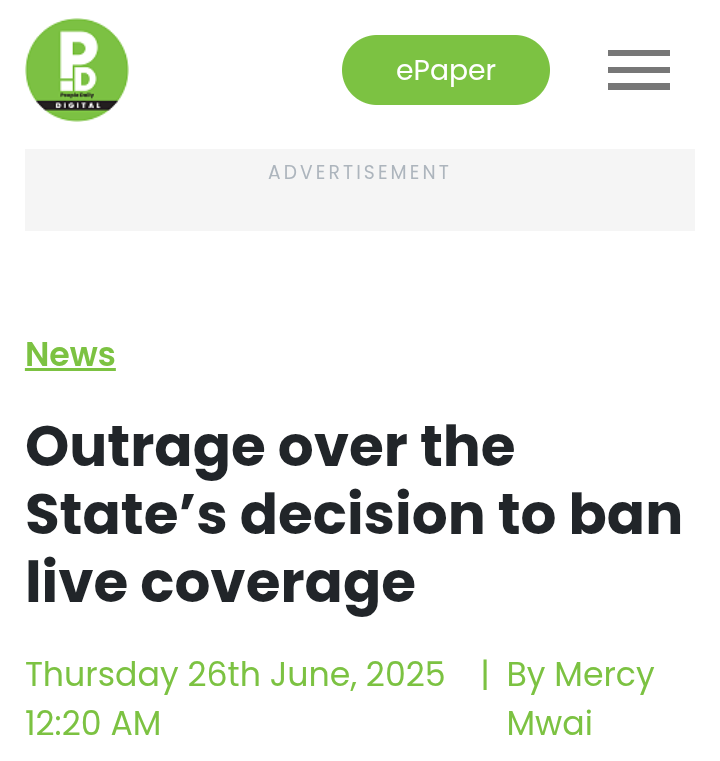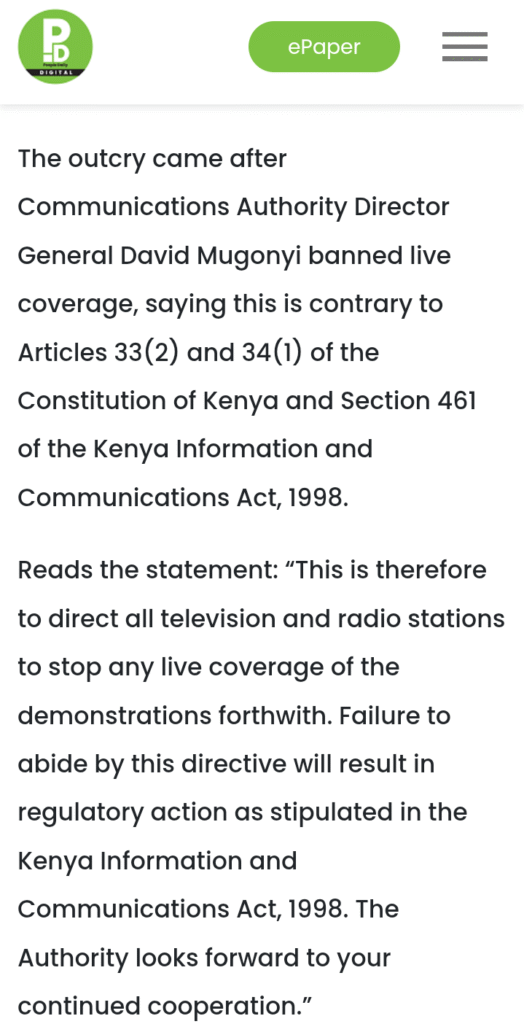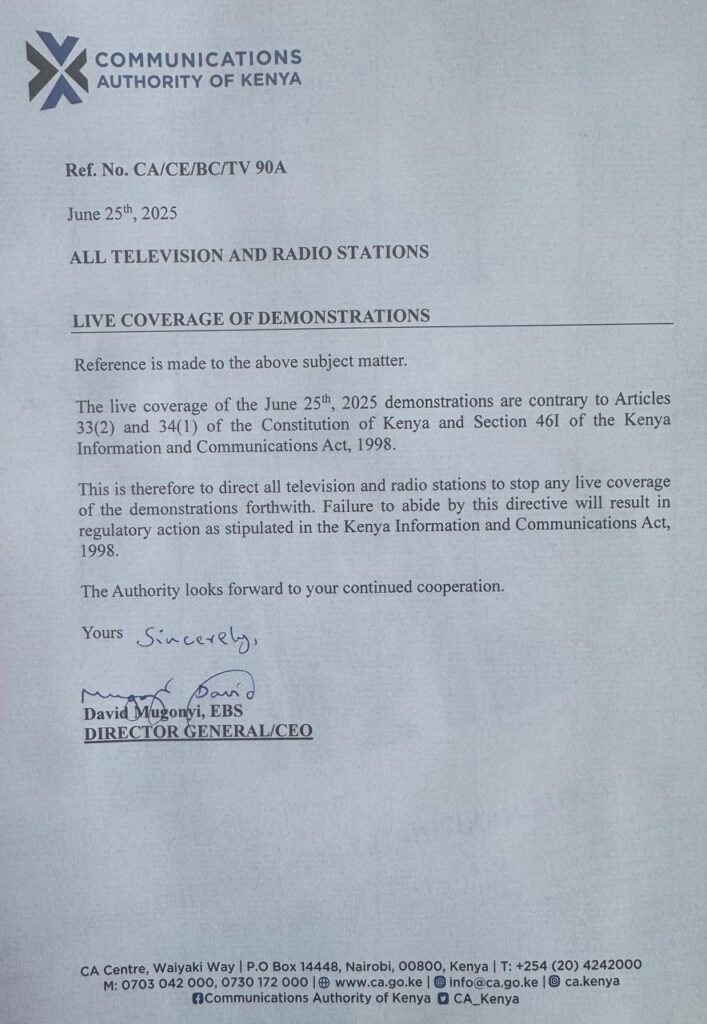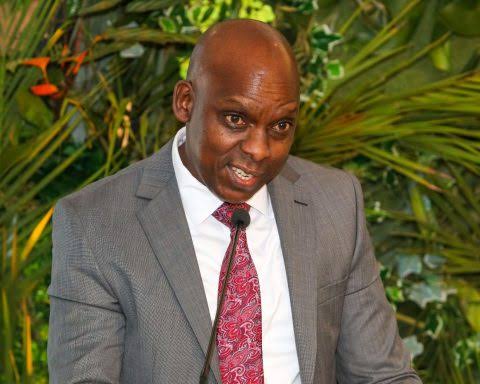David Mugonyi has once again shown why he was handpicked to lead the Communications Authority of Kenya.
He was placed in that position to do exactly what he did act as a mouthpiece and shield for the regime during moments of national unrest.
On June 25, 2025, while Kenyans were out on the streets protesting as part of the Gen Z movement, Mugonyi ordered the shutdown of several media houses including K24, NTV, and KTN. He did this by falsely citing constitutional provisions that have already been overruled in court.

Mugonyi not only ignored the 2024 High Court judgment that found the Authority’s broadcast regulations unconstitutional, but also attempted to mislead the public using misquoted sections of the Constitution and outdated laws.
Despite a clear ruling by Justice Lawrence Mugambi stating that the Communications Authority has no power to regulate content and that such power rests with the Media Council of Kenya, Mugonyi still went ahead and issued a ban.
His directive was not only illegal but also a direct violation of Articles 33 and 34 of the Constitution, which protect freedom of expression and media freedom.
Multiple civil society organisations, legal bodies, and media institutions called out this act for what it was state censorship.
These include the Media Council of Kenya, Kenya Editors Guild, Law Society of Kenya, and Police Reforms Working Group, among others.
Their joint statements condemned the move, pointing out that live media coverage plays a critical role in informing citizens, deterring abuse by law enforcement, and documenting truth in real time.
Instead of promoting accountability, Mugonyi chose to plunge the country into an information blackout that could only increase confusion and unrest.
It was a cowardly move from a man who has repeatedly disobeyed court orders and used his position not to protect public interest but to enforce the wishes of the state.
The statements further warned that shutting down media and the internet violates conservatory court orders issued in 2023 against the Communications Authority. It was clearly established that such acts are unconstitutional and amount to a gross assault on press freedom.
Yet Mugonyi continues to act above the law. He justified his actions by claiming to prevent incitement and violence, but no credible evidence was presented to show that the media houses in question had violated the law.
Even the Media Council reminded the press to avoid glorifying violence, but also strongly defended the role of journalists to cover issues of public interest. The council stood firm, defending editorial independence and stressing that responsible journalism is not a crime.

David Mugonyi, however, treated it like one. Former Chief Justice Willy Mutunga did not mince his words, calling out the Communications Authority’s fascist interpretation of the law. Senior Counsel Paul Muite also pointed out that Article 34 protects the right to broadcast peaceful protests and keep the public informed.

The High Court later overturned Mugonyi’s illegal directive. But the damage had already been done. Mugonyi’s actions showed a pattern ignoring legal rulings, silencing the press, and abusing regulatory power to serve political interests.
He has become a symbol of state repression hiding behind weak legal excuses, and Kenyans are right to demand accountability for his repeated misuse of public office.





















Add Comment